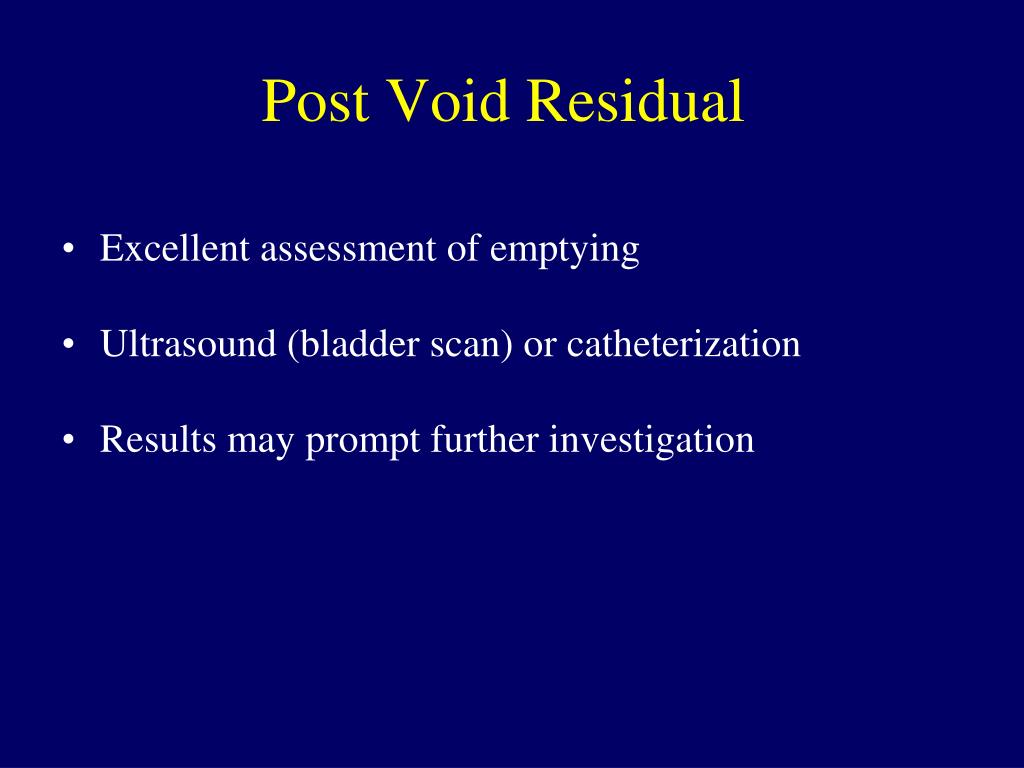
The following are changes that are of particular interest to us in the urgent care field:
Post void residual icd 9 update#
There will be one more regularly scheduled ICD-9 update on October 1, 201, the vastly larger ICD-10 code set is scheduled to take effect.
Post void residual icd 9 professional#
Since 51798 has no separate professional or technical component, it cannot be billed only for professional services.Carriers closely scrutinize separate E/Ms billed with 51798, so ensure there is a separate diagnostic reason for an E/M visit.A separate E/M visit can be billed on the same day as the ultrasound, but a 25 modifier may be required.When billing for CPT code 51798, keep in mind the following guidelines and rules: Provider’s interpretation of the results and any recommendations for further evaluation or treatment.Any additional findings or observations made during the procedure.Results of the post-void residual urine measurement and/or bladder capacity calculation.Details of the ultrasound procedure, including the patient’s position, application of ultrasound gel, and placement of the transducer.Physical examination findings, including any abnormalities in the lower abdomen or urinary system.Patient’s medical history and symptoms related to urinary retention or bladder dysfunction.A healthcare provider may recommend this test to evaluate the effectiveness of treatments for these conditions or to monitor the patient’s progress over time. This procedure may also be performed on patients with a history of urinary tract infections, bladder dysfunction, or other related conditions. Patients who are eligible to receive CPT code 51798 services include those experiencing symptoms of urinary retention, such as difficulty urinating, weak urine flow, or frequent urination.

The transducer converts the returning echoes into electrical signals to calculate the volume of urine left in the bladder.The transducer emits sound waves through the skin, which return back to the transducer as echoes.The ultrasound probe (transducer) is placed on the skin’s surface.Ultrasound gel is applied to the lower abdomen.The patient is placed in the supine position.The patient is asked to urinate to void the bladder before the exam.The 51798 procedure involves the following steps:


 0 kommentar(er)
0 kommentar(er)
